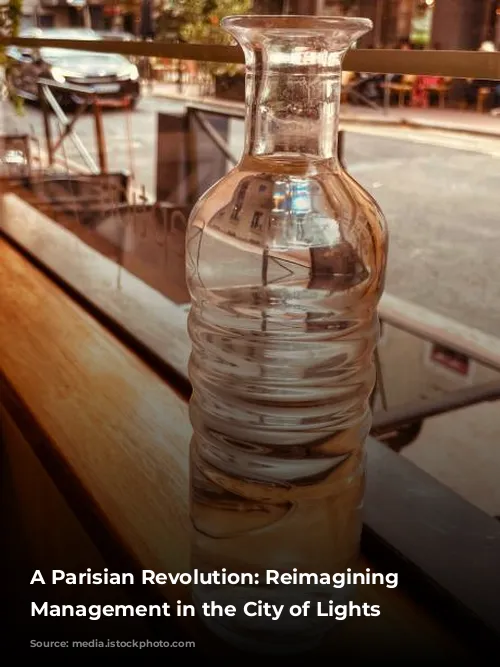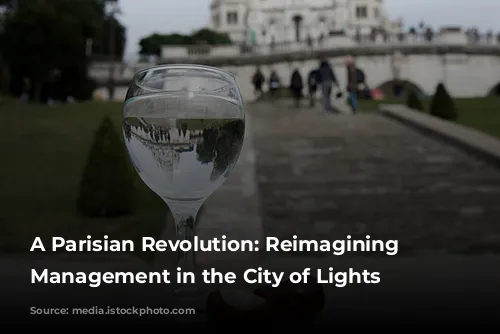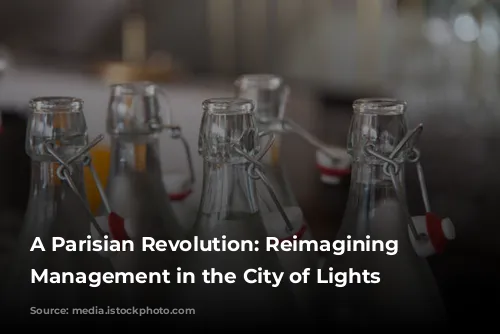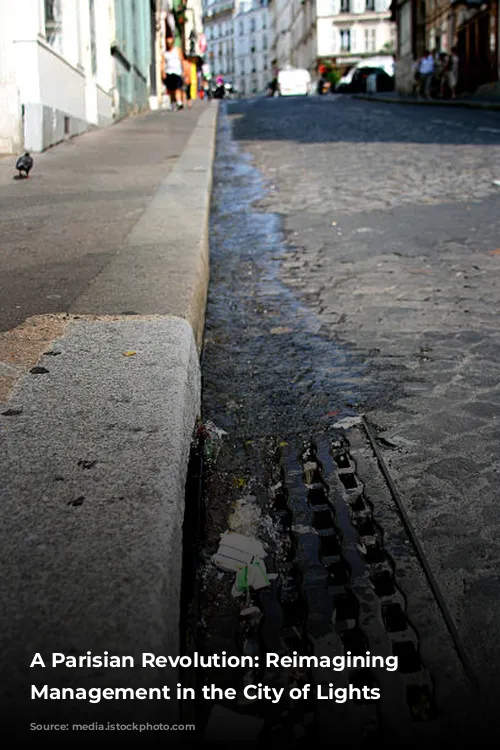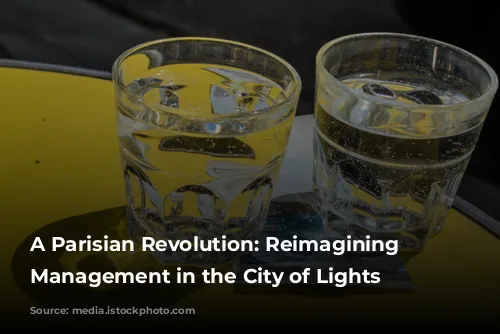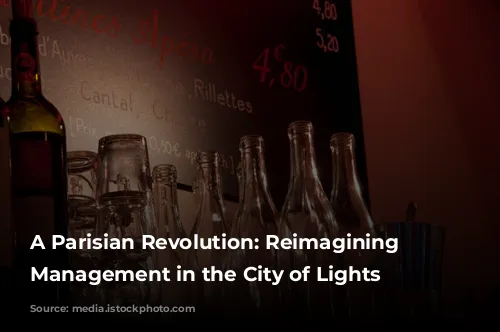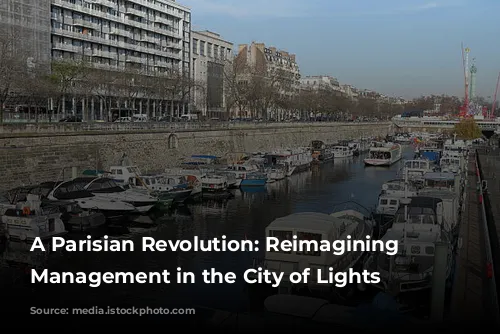The Canal Saint-Martin, a charming waterway that winds through the trendy 11th arrondissement of Paris, is a beloved spot for locals and tourists alike. With its shimmering turquoise waters, charming footbridges, and lively café terraces, it epitomizes Parisian charm. However, this historic canal is not merely a scenic attraction; it also represents a quiet revolution in the French capital’s approach to water management.
This revolution is about more than just cleaning up canals. It’s about acknowledging the crucial role water plays in our lives and finding innovative ways to ensure its sustainability for future generations.
A New Era of Sustainable Water Management
Paris has embarked on a comprehensive journey to transform its relationship with water. This change began in 2009 with the nationalization of the public water service, creating Eau de Paris, a public entity dedicated to sustainable water management. This move signaled a shift from viewing water as a profitable commodity to recognizing its value as a common good.
Eau de Paris embraces a holistic approach to water management, from source to tap. This means taking responsibility for the entire water lifecycle, from the source of water to the purification and distribution processes. The city’s commitment to a public water service ensures affordable prices for residents and allows for reinvestment in infrastructure and innovation.
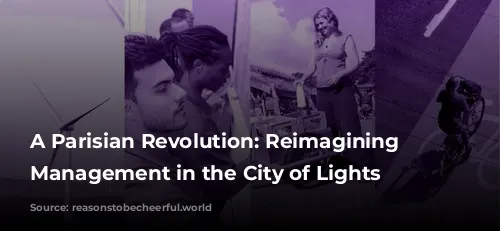
Prevention is Key: A Proactive Approach to Water Quality
Paris’s strategy emphasizes preventing pollution at its source, rather than simply dealing with the consequences. This proactive approach is a departure from the polluter-pays model prevalent in many parts of the world.
The city is actively working with local farmers to reduce the use of fertilizers and pesticides in agricultural areas, promoting sustainable farming practices. By limiting pollution at the source, Paris can reduce the need for extensive water treatment and protect the water quality for all.
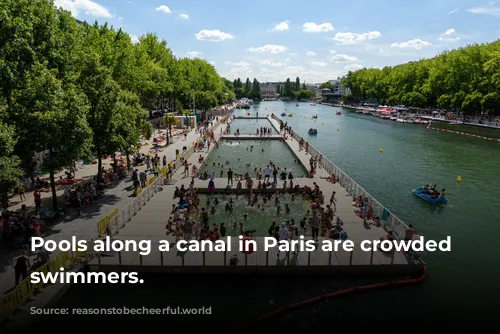
Every Drop Counts: Reducing Waste and Promoting Conservation
Paris is dedicated to minimizing water loss through a multi-pronged approach. The city has invested in a sophisticated leak detection system, utilizing 3,000 acoustic devices to pinpoint and repair leaks in the water network. This proactive approach has resulted in saving millions of cubic meters of water annually.
Alongside technological advancements, Paris emphasizes public awareness and education to promote water conservation. The city has launched campaigns to highlight the significant waste caused by leaky faucets and toilets, encouraging residents to be mindful of their water consumption.
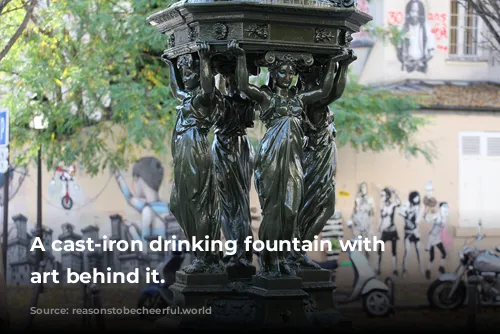
Embracing Innovation: Public Fountains and Sustainable Treatment
Paris has also revitalized its public fountain network, transforming them into refreshing hubs for residents and visitors. These fountains, some even offering cooling mist during hot summer months, provide a sustainable alternative to bottled water, reducing plastic waste and promoting healthy hydration.
The city is also committed to environmentally friendly water treatment methods. Paris uses low-pressure reverse osmosis technology, which generates lower emissions compared to other treatment methods. This commitment to sustainability extends across all aspects of water management.

A City Leading by Example: Paris’s Success and Global Impact
Paris’s dedication to sustainable water management has yielded impressive results. In the last decade, the city has reduced water use by 10 percent and cut water-related greenhouse gas emissions by 25 percent. These achievements demonstrate the power of a comprehensive approach to water management, setting a positive example for other cities facing similar challenges.
However, Paris’s success is not a blueprint to be copied verbatim. Each city has its own unique context, resource availability, and challenges. While Paris grapples with the impact of climate change on water resources, cities like Montevideo in Uruguay face severe droughts, while Salt Lake City experiences a shrinking Great Salt Lake.
The future of water management demands collaboration and innovation to address the diverse challenges facing cities around the world. Experts emphasize the need for cities to explore multiple water sources, including desalination, greywater reuse, and urban creek restoration.
Building a Sustainable Future: A Call for Global Action
The urgent need for sustainable water management is not just a local concern, but a global imperative. Cities across the globe are facing the consequences of climate change, including increased drought and water scarcity.
While Paris offers a shining example of a city transforming its approach to water management, the global challenge requires a collective effort. It demands political will, investment in infrastructure, and a shared commitment to prioritizing water as a precious resource.
The future of water management hinges on our ability to move beyond the traditional focus on water as a commodity and embrace its value as a fundamental element of our planet’s health and our collective well-being. By drawing inspiration from Paris’s journey, we can forge a path towards a sustainable future where water is not a source of conflict but a catalyst for collaboration and progress.

